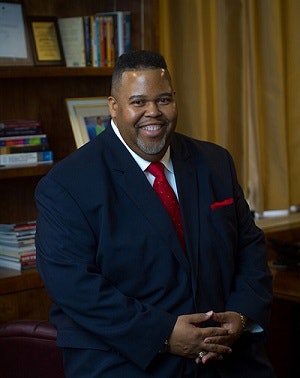To say we live in interesting times is a vast understatement. The confluence of the coronavirus pandemic and the resulting economic upheaval, combined with the structural racism and the ensuing race-related tragedies that continue to plague our nation, has created a “perfect storm” of conditions shining a glaring light on the inequities in our society. Community college presidents are in the eye of this storm, and it is critical for us to demonstrate a commitment to eradicating racism and supporting social justice and, more importantly, to set forth a strategy to effect reform and achieve inclusive excellence.
In this brand-new academic year, we need to ask ourselves: how do we not only brave this storm but emerge stronger from it? It is not enough to espouse platitudes. Yes, statements are important, but we must go beyond them to achieve success. They are the foundation on which we must build a culture of equity and inclusion. Structural racism is based on historical policies and practices and its resultant inequitable outcomes in economic wealth, health, education, and life expectancy. Implicit bias—the unchallenged narratives and assumptions about historically marginalized students—is insidious and often unrecognized by well-meaning people. We understand that the challenge is great, but the potential of our students is even greater.
To be clear, we are not talking about affirmative action or equal employment opportunity, altruism, or non-meritorious achievement. We must think bigger than that. To close equity gaps, community colleges must first offer a safe and welcoming environment, create strategic partnerships between the college and the community, and take advantage of our organizational resources and collaborative leadership to ensure equitable opportunities and outcomes for all our students.
 Dr. Michael A. Baston
Dr. Michael A. BastonThe key words here are Access—the opportunity to fully participate in campus life; Equity—fair and just outcomes for all to achieve their full intellectual and professional potential; and Inclusion—an individual or group sense of belonging as valued members of campus life. With these words in mind, at Rockland Community College, we started developing an actionable plan in June. “Steps Beyond Statements” is Rockland Community College’s commitment to living our value of social consciousness.
Our first step was to establish a College Working Group to review the legacy of diversity efforts led by the college’s former Diversity Committee to build on their outcomes to reflect current realities. The Working Group has been charged with developing a new college-wide plan with specific outcomes that are measurable using key performance indicators to be reported on an equity scorecard. We have conducted an in-depth Student Diversity Survey, and the data analyzed from it has provided us with critical insight that will serve as a guide for our ongoing activities.
In June, I moderated a Black Lives Matter panel discussion with RCC students and alumni. Having these types of talks leads to additional dialogue, generating new ideas and ways of thinking. The new Office of Diversity, Equity & Inclusion followed this event, hosting a kickoff conversation with our faculty about teaching inclusively and equitably, titled Listening to Learn and Conversations to Contribute. The program highlighted innovative strategies to engage all students as part of the SUNY Center for Professional Development’s Diversity, Equity & Inclusion in Teaching and Learning Certificate Program. The purpose of this program is to help faculty and others involved in teaching and learning in higher education develop new mindsets and strategies for more inclusive and equitable practices in classrooms and other learning environments.
Our Connection Counselors and Student Involvement teams have come together to create a space for the RCC community to speak up and offer ways to make a difference related to systemic injustices. RCC Speaks is a space for students to share their thoughts, feelings, perspectives, and suggestions through words, images, and videos, about how to make a difference in our lives, on our campus, and in our communities.
Whatever approach you decide to take in addressing equity-focused reforms on your campus, certain things should be central in making the case. Institutions would benefit from demonstrating how equity-focused reform:
- Affirms the role of public institutions of higher education in strengthening the nation
- Illustrates the unique educational and convening roles of community colleges
- Elevates the college’s mission, vision, and values
- Expands the college’s institutional redesign efforts beyond the student experience
- Catalyzes campus-wide collaboration and commitment
Presidents must engage in this work with courage, conviction, compassion, and confidence if we are to truly make equity-focused reforms that will make a difference in our institutions. Statements in support of eradicating racism and supporting social justice are an essential first step for every organization, but action must follow so that progress can be real and change can be tangible. We believe our “Steps Beyond Statements” will lead to a more equitable experience for our students, faculty, and staff. Community colleges have always been democracy’s colleges, offering a beacon of hope to those who strive to improve their lives. Now we have the opportunity to be a shining beacon for so many more who will look to us to hold the ladder steady and allow them to climb higher.
Finally, I would argue, it is our fundamental obligation to ensure that history will look back on this perfect storm and find that Community Colleges were on the front lines of ensuring that we emerged into a better, more equitable world.
Dr. Michael A. Baston is the president of Rockland Community College.


















